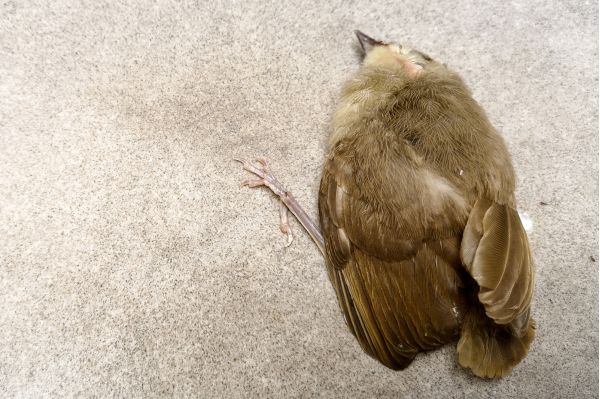HSE advises not to touch sick or dead wild birds

Minister for Agriculture, Food and the Marine, Martin Heydon confirmed the avian influenza case yesterday (July 31). A bird from a very small backyard flock in Co. Donegal tested positive for the H5N1 highly pathogenic avian influenza following a post-mortem examination carried out by the Regional Veterinary Laboratory in Sligo. Other birds in the flock were euthanised. The minister stated that there are no trade implications for the Irish poultry industry in relation to this particular detection, due to the very small size of the flock.
Bird flu or avian influenza is a type of influenza that primarily affects wild birds and poultry, and which can also occasionally infect some mammals and humans. Highly pathogenic avian influenza (HPAI) is a type of avian influenza that can cause high levels of illness and deaths in birds. Of the many strains of HPAI viruses, the H5N1 virus is widely regarded as the most serious for both birds and humans.
According to the HSE, it is very unusual for people to catch bird flu but it can happen. It stated: “Currently, it is hard to catch avian influenza from a bird or animal, and there is no evidence that it can be passed between people, but if the virus mutates (changes) this may happen in the future.” It stated that it is important to prevent people getting H5N1 because:
- It can – rarely – produce serious disease in people;
- Mixing of avian influenza and seasonal flu in a person could allow the virus to mutate and become better at spreading between people; and
- If a person is infected with HPAI, it could be passed from people to Irish poultry flocks leading to severe disease among birds.
The HSE is reiterating the advice of the Department of Agriculture, Food and the Marine (DAFM) to the public:
- Do not to touch sick or dead wild birds
- Do not touch wild bird feathers or droppings
- Avoid contact with surfaces contaminated with wild bird droppings
If a person picks up or handles sick or dead wild birds that are found to be infected with avian influenza, they will be monitored for a period of 10 days and may be offered antiviral medication and vaccination if they are considered to be at risk.
The DAFM requests that all sick/dead wild birds are reported via the Avian Check app. While not all dead birds will be collected for testing, reporting is greatly appreciated and provides important information to support surveillance and risk assessment activities.





